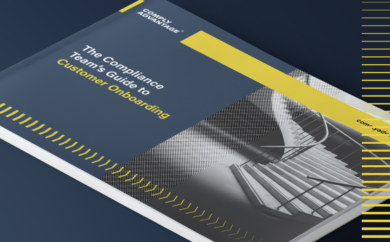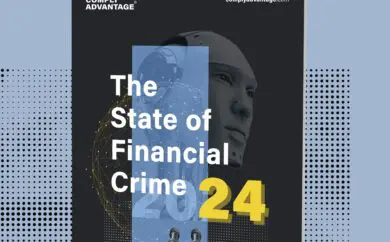European Commission 2022 Supranational Risk Assessment Report: What You Need To Know
Regulators & Key Institutions Latest NewsOn October 27, 2022, the European Commission issued its Supranational Risk Assessment Report (SNRA) to the European Parliament and Counsel regarding the “risk of money laundering (ML) and terrorist financing (TF) affecting the internal market and relating to cross-border activities.” The report’s outcomes and recommendations flagged the online gambling sector as a high-risk area of anti-money laundering (AML) and combatting terrorist financing (CTF) concern.
Made up of two documents, the report and a detailed Staff Working Document, the SNRA analyzes money laundering and terrorism financing risks and recommends a comprehensive action plan to address them. The report also considers “sectors or products where relevant changes have been detected.”
This report marks the third of its kind, with the Commission publishing its first SNRA in 2017 and the second in 2019 pursuant to the 4th and 5th Anti-money Laundering Directives, respectively.
Online Gambling ML/TF Risk
After re-calculating the risk levels of various product and activity groups, the 2022 SNRA regraded the risk of money laundering and terrorist financing for online gambling from level 3 (Significant, High Risk) to level 4 (Very Significant, Very High Risk). According to the Commission, this is mainly due to “the non-face-to-face element, and huge, complex volumes of transactions and financial flows.” The possible use of virtual currencies and e-money, as well as the rise of unlicensed online gambling sites, intensifies this risk.
To mitigate this risk, the Working Document calls for improved cooperation between relevant authorities to better understand the risk factors inherent to online gambling and provide efficient guidance. Member States are also encouraged to strengthen customer due diligence requirements and increase the number and quality of suspicious transaction reports (STRs).
The Working Document also lists the following “risk scenarios” associated with online gambling:
- A perpetrator uses gambling websites to deposit illegal funds and requests the pay-out of winnings or unplayed balance
- Legitimate online gambling accounts are credited with illicit funds, followed by gambling activity on only a small amount of funds. The remaining funds are then transferred to a different player, who then cashes out as if they were legitimate gambling earnings
- Crime organizations using several “smurfs” to bet against each other using illicit funds. One of the “smurfs” will receive all of the funds as an apparent winner, who will then cash out the funds as if they were credible gambling earnings
- Crime organizations may also invent and bet on fictitious matches or events to ensure winnings
Compliance staff should analyze the risk scenarios highlighted by the Working Group and consider configuring their rule set accordingly to prevent and detect online gambling AML/CFT risk.
Recommendations to Member States
Following the Commission’s recommendations from the 2019 SNRA, the report also provides an updated list of guiding measures for Member States, such as:
- Keep national risk assessments up to date, ensuring they cover all relevant risks and provide appropriate mitigating measures
- Fully implement the provisions set out in the Anti-Money Laundering Directive related to beneficial ownership registers
- Ensure AML/CFT supervisors and FIUs have appropriate resources to fulfill their tasks
- Conduct on-site inspections that are commensurate, in terms of frequency and intensity, to the identified ML/TF risks – for the non-financial sector, Member States should ensure their competent authorities conduct sufficient unannounced spot-checks, especially on high-value dealers, real estate professionals, and antique traders
- Extend the list of obliged entities to include all crypto-asset service providers, as recommended by the Financial Action Task Force (FATF)
- Ensure customer due diligence rules are not circumvented
- Engage in close and ongoing cooperation among AML/CFT competent authorities, FIUs, law enforcement authorities, and the private sector
- Provide unique and ongoing training for obliged entities
- The Commission will continue to track the implementation of its recommendations and issue an updated report by 2024 in light of any changes that may be introduced into the current EU regulatory framework.
Compliance staff should remain abreast of any updates to the current AML legal framework and AML/CFT Action Plan. Such updates are expected to arise from the Meeting of the Expert Group on Money Laundering and Terrorist Financing, which took place on November 24. In the draft agenda published ahead of the meeting, information points covering the use of public-private partnerships and consolidating a list of politically exposed persons (PEPs) were due to be discussed.
Originally published 25 November 2022, updated 25 November 2022
Disclaimer: This is for general information only. The information presented does not constitute legal advice. ComplyAdvantage accepts no responsibility for any information contained herein and disclaims and excludes any liability in respect of the contents or for action taken based on this information.
Copyright © 2024 IVXS UK Limited (trading as ComplyAdvantage).





